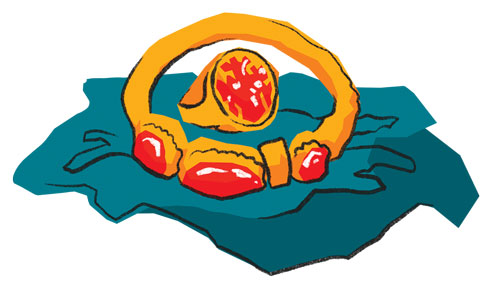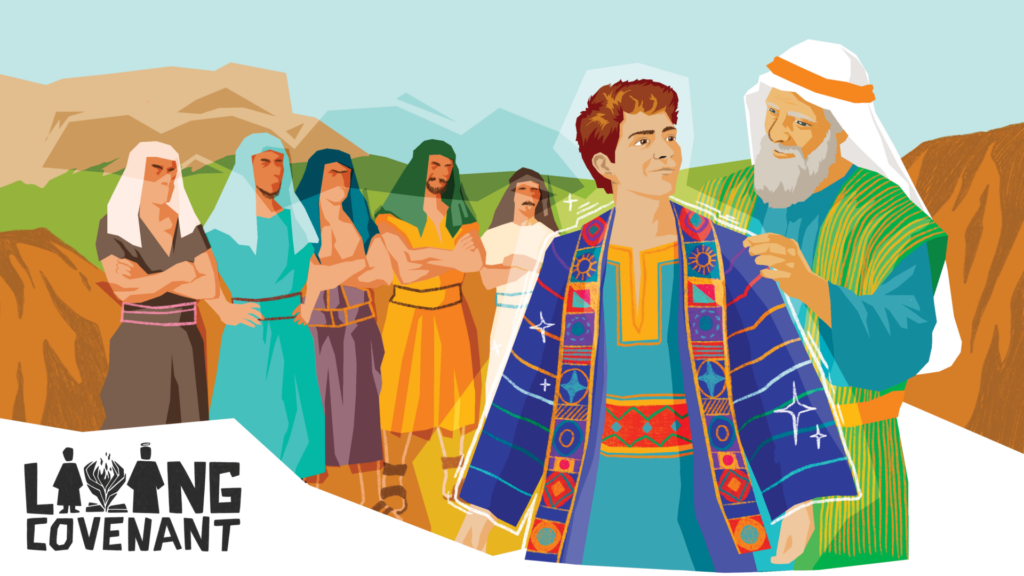“Tamar!” Er shouts, frightening you. What will he do this time? What wicked atrocity will he commit?
“God, have mercy upon me.” Turning to your seething husband, you shrink back as he charges towards you. But, somehow, this raging bull collapses on the ground—dead . . .
Time ticks by, and your father-in-law, Judah, gives you his second son, Onan, following through with the law God put in place for your protection. Instead of providing you with children, however, he abuses you for his selfish pleasure. But he also collapses—dead . . .
Can I not be of significance in this life? God, can I not have a child? Oh, how wretched I am!
Running to your father-in-law, informing him of the situation, he tells you to remain a widow in your father’s house until his youngest son is grown.
Time ticks by, except there was no message from your father-in-law. Here you are, a servant in your own father’s home, for you are no longer under his provision.
Eventually, the third son is of age. But he has not been given to you, as was promised. You are not your father’s daughter anymore. You are in the family of God-be-praised (Judah), and yet you have not been given the chance to be a source of life (Tamar).
* * *
In our culture today, the thought of being given to one of your husband’s brothers is ludicrous. However, this practice, outlined in Deuteronomy 25:5-10, paints a picture of a God who loves to protect and provide for women.
Er was wicked in the sight of God, and as a consequence, he died. Onan held an outward appearance of fulfilling his duty, but he ended up selfishly using Tamar for pleasure and halting her from being able to fulfil her duty to conceive a child on behalf of her dead husband. His actions were also wicked in the sight of God; thus, he was killed. Due to being in the family of Judah, Er and Onan were also to be representatives of God to Tamar. However, their actions obviously showed otherwise.
Psalm 19:9 states that God’s judgements are true and righteous altogether. While we may struggle to understand God’s reasonings for the harsh punishments we see in the Old Testament, their deaths reveal just how far they had turned from Him—so far, in fact, that they no longer desired any connection with Him. Through this we also see how Tamar is protected and shown love and mercy by God, though she may have questioned where God was in the middle of her hardship—as we often do too. Tamar’s story is not one that many people can relate to today. Yet we can see that even through the challenges Tamar faced, God still provided.
For me, I intentionally have to remind myself (and ask God to remind me) that He is the One who provides my every need and desire. At the 2024 North New South Wales prayer conference, Pastor Dwayne Lemon explained that there are three basic needs that only God can fill: our need for significance (Jeremiah 29:11), love (Jeremiah 31:3) and security (Hebrews 13:5).
My selfish nature, when I have not been connected with Jesus, is one of escape. Escaping the harsh world around me through the nature of relationships. This selfishness has brought metaphorical darkness and death into those relationships, and has shown how I, as a professed follower of Jesus Christ, have taken His name in vain.
I grew up in the world without the care of any religion. My understanding was that you believe what you want to believe—just don’t shove it on me. God worked on my heart through a friend’s prayer and thoughtful conversations. At the end of 2019, my heart was shattered into so many pieces that fine dust was to be seen in the pile; I was used and abused by the world where I found no worth in life and questioned it. That was where I met God, my Creator.
During 2020 I attended several Bible studies and thirsted and hungered after the truth, getting baptised in July that year. It was fast, but one never declines God’s calling. Unlike Tamar, I had options in choosing people to date, with the intention for marriage. Although I had stayed single for a couple of years, the pain and damage that I had swept underneath the rug of my life slowly poured out in my relationships. Unlike Tamar, I did not wait on God to heal me and guide me on the path He had for me. I rushed, looking for comfort in the best way I knew from my old self—a new relationship—disrespecting God, a dear friend and brother in Christ, and myself. I turned into the character of Judah, and God rebuked me for the wrong I committed against Him and my friend.

My security was not in God during those times, and I had put my attention on relationships with boys instead of my relationship with God. Despite declaring to be a Christian, my eyes were not turned upon Jesus. Tamar, on the other hand, kept her gaze on God. Despite how off-putting her actions were with Judah, she acted according to the best understanding she had of the law. An ancient Hittite law, similar to the levirate law (found in Deuteronomy 25:5-10), states: “If a man has a wife, and the man dies, his brother shall take his widow as wife. (If the brother dies,) his father shall take her. When afterwards his father dies, his (ie the father’s) brother shall take the woman whom he had.” Tamar’s security in life, as a woman within her culture, was her husband; when the husband is out of the picture, it is then the brother’s duty to secure her place in the family by giving her a child.
Tamar is trying to live up to the meaning of her name and be a “source of life” in the midst of death and wickedness. She seeks to be the source of life by fulfilling her duty as a wife—to continue the genealogy of Judah.
Despite Tamar’s heartache and struggle, she is recognised as a part of the genealogy of Jesus. Her story reminds us that we can come to Jesus just as we are—regardless of our past—knowing that He doesn’t want us to stay that way. Tamar remained faithful to her calling and to the promise carried in her name (to become a source of life). In doing so, she became part of the lineage that led to the Source of all life—Jesus Christ.
We too can be faithful in our daily walk to leave a legacy of life for those who follow us. It starts with spending time with Him in His Word and praying daily. The more I have sought after Him in prayer and studying my Bible—surrendering my desires to Him—the more I have seen God move in His loving manner.
This story, although difficult, shows me that God protects and provides. God has taught me to trust in Him with all my heart, and lean not on my own understanding; in all my ways acknowledging Him, and He is just and loving to direct my paths for a life that honours and glorifies Him—even when I do fall.
Nikita Jensen is studying a Bachelor of Arts at Avondale University, Cooranbong, NSW.






